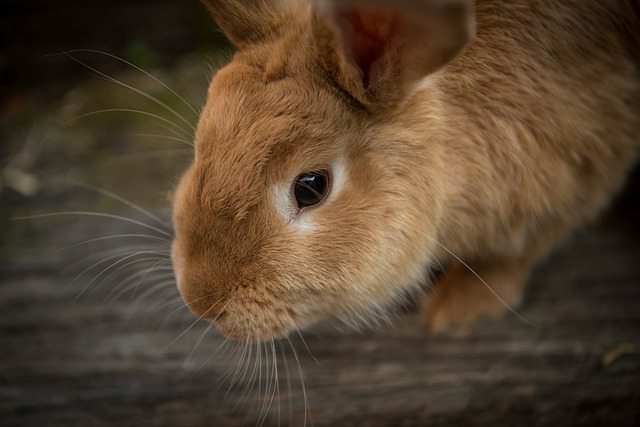12 Potential Causes of Rabbit Sudden Death
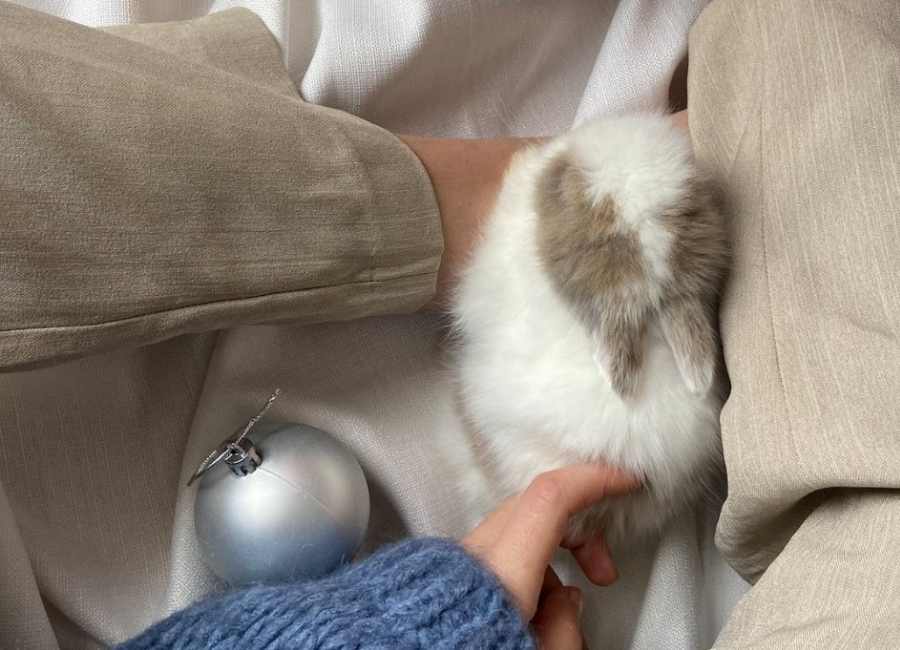
Hey there, rabbit lovers! Have you ever been left puzzled and heartbroken by the sudden loss of your beloved rabbit?
We understand the pain, and in this short blog post, we’re going to explore the mysterious world of rabbit sudden death, uncovering potential causes and offering tips to keep your furry friends happy and healthy.
So grab a cup of tea, sit back, and let’s dive in together!
What is Rabbit Sudden Death?
Rabbit sudden death is a condition characterized by the sudden and unexpected death of rabbits without any apparent cause, it can occur in rabbits of all ages and breeds.
The exact cause of rabbit sudden death is unknown, but it is believed to be associated with various factors such as stress, heart disease, respiratory infections, and gastrointestinal issues.
Prompt veterinary attention is crucial in cases of rabbit sudden death to determine the cause and prevent further deaths.
Causes of Rabbit Sudden Death
Rabbit sudden death can be caused by various factors, including viral infections, such as rabbit hemorrhagic disease, which can lead to sudden death within hours.
Other potential causes include heat stroke, heart failure, and gastrointestinal issues like bloat or gut stasis.
It is essential to provide rabbits with proper care, monitor their health closely, and seek veterinary assistance promptly if any concerning symptoms arise.
Let’s break it down further…
The following are some of the most common causes of rabbit sudden death:
1. Heatstroke
Heatstroke is one of the leading causes of sudden death in rabbits. It occurs when the rabbit’s body temperature rises to dangerous levels, often due to exposure to high temperatures or inadequate ventilation.
To prevent heatstroke, it is crucial to provide rabbits with a cool and well-ventilated environment, especially during hot weather. This can be achieved by keeping them indoors or providing shaded areas outdoors.
Additionally, ensuring a constant supply of fresh water and avoiding direct sunlight exposure can help prevent heatstroke in rabbits.
Regular monitoring of rabbits for signs of heat stress, such as panting, lethargy, and loss of appetite, is also essential for early intervention and prevention of sudden death.
2. Gastrointestinal Stasis (GI Stasis)
Gastrointestinal stasis, also known as GI stasis, is a common and potentially life-threatening condition in rabbits. It occurs when there is a disruption in the normal movement of food through the digestive tract.
This can lead to a buildup of gas and food material, causing bloating and pain. If left untreated, GI stasis can result in sudden death. To prevent GI stasis in rabbits, it is essential to provide a balanced diet high in fiber, such as hay and fresh vegetables.
Regular exercise, hydration, and avoiding sudden changes in diet or environment are also crucial preventative measures. Veterinary check-ups and prompt treatment of any signs of GI stasis can help ensure the well-being and longevity of rabbits.
3. Hemorrhagic Disease
Hemorrhagic disease is a leading cause of sudden death in rabbits, characterized by internal bleeding and organ damage. It is caused by a highly contagious viral infection, typically transmitted through insects or contaminated food and water.
To prevent hemorrhagic disease in rabbits, vaccination is crucial. Regular vaccinations can provide immunity against the disease and significantly reduce the risk of sudden death.
Additionally, maintaining good hygiene, such as cleaning and disinfecting rabbit enclosures, and controlling insect populations can further prevent the spread of the virus and protect rabbits from this deadly disease.
4. Heart Attacks
Heart attacks are indeed a leading cause of sudden death in rabbits. These heart attacks, also known as acute myocardial infarctions, occur when there is a blockage in the blood vessels that supply the heart.
To prevent sudden death in rabbits, it is crucial to maintain a healthy diet and weight for the rabbit, as obesity can contribute to heart disease. Regular exercise and mental stimulation are also important for overall cardiovascular health.
Additionally, providing a stress-free environment and minimizing exposure to toxins or harmful substances can further reduce the risk of heart attacks in rabbits.
5. Cold Temperatures
Cold temperature is a common cause of sudden rabbit death due to hypothermia. Rabbits are sensitive to extreme cold and can experience a rapid drop in body temperature, leading to organ failure and death.
To prevent sudden death, it is crucial to provide adequate shelter for rabbits, such as insulated hutches or indoor housing. Additionally, providing extra bedding and ensuring the enclosure is draft-free can help maintain a suitable temperature.
Regular monitoring of the rabbit’s well-being and taking immediate action if signs of distress or hypothermia are observed is essential for preventing sudden death in rabbits due to cold temperatures.
6. Poisoning
Poisoning is a potential cause of sudden death in rabbits. It can occur if rabbits ingest toxic substances such as certain plants, chemicals, or medications.
To prevent poisoning in rabbits, it is crucial to ensure that their environment is free from toxic plants and chemicals.
Additionally, all medications should be stored securely and out of reach. Regular supervision and proper diet management can also help prevent accidental ingestion of harmful substances.
In case of suspected poisoning, immediate veterinary attention should be sought to maximize the chances of successful treatment and prevent sudden death.
7. Trauma
Trauma is a common cause of sudden rabbit death, often resulting from accidents or physical injuries. It can lead to internal bleeding, organ damage, or fractures, which can be fatal for rabbits.
To prevent trauma-related deaths, it is essential to provide a safe and secure environment for rabbits, free from hazards and potential sources of injury.
Regular veterinary check-ups are crucial to identify and treat any underlying health conditions that may increase the risk of injury.
Additionally, handling rabbits gently and avoiding rough play can minimize the risk of trauma-related incidents.
8. Liver Disease
Liver disease is a potential cause of sudden death in rabbits. It can result from various factors such as infections, toxins, or poor diet.
To prevent liver disease in rabbits and mitigate the risk of sudden death, it is crucial to provide a balanced and nutritious diet, avoiding excessive amounts of carbohydrates or fats. Regular veterinary check-ups can help detect any underlying liver issues at an early stage.
Additionally, ensuring a clean and sanitary living environment for rabbits, along with proper hygiene practices, can minimize the risk of infections that may contribute to liver disease.
9. Infections
Infection is a significant cause of sudden death in rabbits. These infections can affect various systems in the rabbit’s body, including respiratory, gastrointestinal, and urinary tracts.
To prevent sudden death from infections, it is essential to maintain proper hygiene and cleanliness in the rabbit’s living environment. Regular veterinary check-ups and vaccinations can also help prevent common infections.
Additionally, providing a balanced diet and ensuring the rabbit’s overall health and well-being can strengthen their immune system, reducing the risk of infections and sudden death.
10. Dehydration
Dehydration is a cause of sudden death in rabbits due to their delicate water balance. Rabbits rely on a constant intake of water to maintain proper bodily functions.
To prevent dehydration and subsequent sudden death, it is crucial to provide rabbits with fresh and clean water at all times. Additionally, offering moist foods, such as fresh vegetables and fruits, can help increase their hydration levels.
Ensuring rabbits have access to a cool and shaded environment, especially during hot weather, is also essential to prevent dehydration.
Regular monitoring of water intake and closely observing any signs of dehydration, such as lethargy or dry mucous membranes, can help detect and address the issue promptly.
11. Seizures
Seizures can be a potential cause of sudden death in rabbits. These episodes of uncontrolled electrical activity in the brain can lead to respiratory distress, cardiac arrest, or other fatal complications.
To prevent seizures in rabbits, it is crucial to maintain a healthy environment, provide a balanced diet, and ensure regular veterinary check-ups. Reducing stress and providing mental stimulation can also help prevent seizures.
Additionally, avoiding exposure to toxins and carefully monitoring medication use can contribute to the overall well-being and seizure prevention in rabbits.
12. Fright Shock
Fright shock, also known as capture myopathy, is a condition that can cause sudden death in rabbits due to extreme stress and fear.
It is often triggered by a sudden and intense fright, such as being chased by a predator or experiencing a loud noise.
To prevent fright shock in rabbits, it is essential to provide a safe and secure environment with minimal stressors.
This includes ensuring proper housing, handling rabbits gently, and avoiding sudden loud noises or sudden movements.
Regular veterinary check-ups and vaccinations can also help maintain the overall health and well-being of rabbits, reducing the risk of sudden death.
Read more about the signs your rabbit is dying.
How to Prevent Sudden Rabbit Death
Preventing rabbit sudden death is important for the health and well-being of rabbits. Here are some common ways to prevent rabbit sudden death:
1. Regular veterinary check-ups: Schedule regular check-ups with a veterinarian who specializes in rabbits to ensure that your rabbit is in good health and to catch any potential issues early on.
2. Proper diet: Provide a balanced and nutritious diet for your rabbit, including fresh hay, vegetables, and a limited amount of pellets. Avoid feeding your rabbit foods that are toxic to them, such as chocolate or certain plants.
3. Clean and safe living environment: Keep your rabbit’s living area clean and free from hazards. Remove any sharp objects, toxic substances, or small items that your rabbit could swallow. Provide a comfortable and spacious living space with appropriate bedding.
4. Exercise and mental stimulation: Allow your rabbit to exercise regularly in a safe and supervised area. Provide toys and activities to keep them mentally stimulated and prevent boredom.
5. Proper handling and socialization: Handle your rabbit gently and properly to avoid causing stress or injury. Socialize your rabbit with other rabbits or animals in a controlled and supervised manner.
6. Parasite prevention: Regularly check your rabbit for external parasites, such as fleas or ticks, and use appropriate preventive measures. Consult with your veterinarian for the best parasite prevention methods for your rabbit.
7. Vaccinations: Follow your veterinarian’s recommendations for vaccinations to protect your rabbit from common diseases, such as rabbit hemorrhagic disease or myxomatosis.
8. Temperature regulation: Ensure that your rabbit’s living area is kept at a comfortable temperature, avoiding extreme heat or cold. Provide appropriate shelter and bedding to help regulate their body temperature.
9. Stress reduction: Minimize stressors in your rabbit’s environment, such as loud noises or sudden changes. Provide a calm and quiet space for your rabbit to retreat to when needed.
Read more about comforting a dying rabbit.
Frequently Asked Questions
What is Rabbit Sudden Death?
Rabbit sudden death, also known as RSD, is a term used to describe the sudden and unexpected death of rabbits, which often occurs without any visible symptoms or warning signs.
What are the possible causes of rabbit sudden death?
There are several potential causes of rabbit sudden death, including infectious diseases, heart conditions, gastrointestinal issues, heat stroke, poisoning, or trauma. It’s important to consult a veterinarian to determine the exact cause in each case.
How can I prevent rabbit sudden death?
While it may not always be possible to prevent rabbit sudden death, there are certain measures you can take to minimize the risk. These include providing a clean and safe living environment, ensuring a balanced diet, regular veterinary check-ups, and preventing exposure to extreme temperatures or toxins.
Are there any specific symptoms to look out for?
Unfortunately, one of the challenging aspects of rabbit sudden death is the lack of visible symptoms. However, some rabbits may show signs of illness or distress before passing away, such as loss of appetite, lethargy, difficulty breathing, or abnormal behavior. It’s crucial to seek veterinary attention if you notice any concerning changes in your rabbit’s health.
Can rabbit sudden death be contagious to other rabbits?
In some cases, rabbit sudden death can be caused by infectious diseases that may potentially spread to other rabbits. If you suspect an infectious cause, it’s essential to isolate the affected rabbit, practice good hygiene, and consult a veterinarian for appropriate testing and treatment.
What should I do if my rabbit passes away suddenly?
Losing a beloved pet can be devastating. If your rabbit passes away suddenly, it’s important to handle the situation with care and respect. Contact a veterinarian for guidance on how to handle the remains and consider seeking support from friends, family, or support groups to help cope with the loss.
Read more about the signs of a sick rabbit.
Conclusion
In conclusion, when it comes to the unfortunate phenomenon of a rabbit sudden death, we must remain vigilant.
By prioritizing regular health check-ups, providing a balanced diet, and creating a safe and stress-free environment, we can help prevent this heartbreaking occurrence.
Remember, our furry friends rely on us for their well-being, so let’s do everything in our power to keep them happy and healthy.

![How to Comfort a Dying Rabbit [12 Helpful Strategies] How to Comfort a Dying Rabbit](https://petcreeks.com/wp-content/uploads/2023/10/How-to-Comfort-a-Dying-Rabbit.jpg)
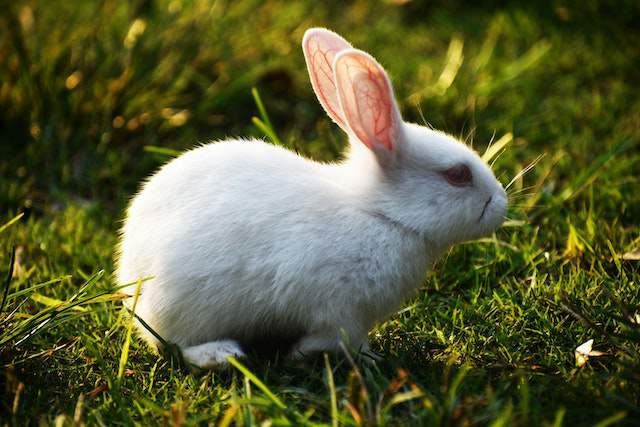
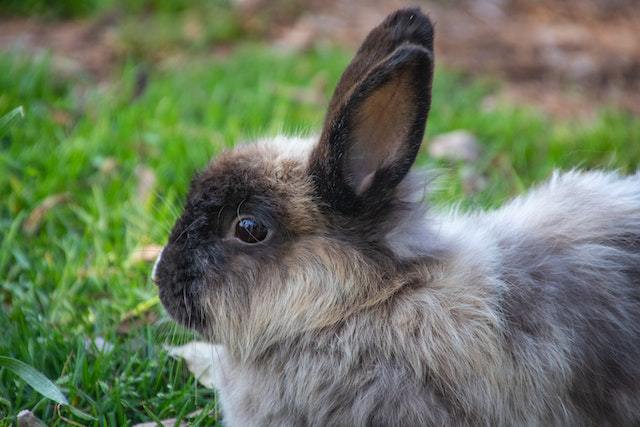
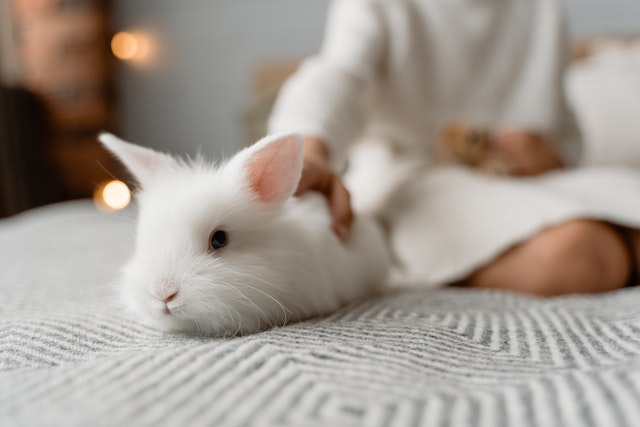
![How to Tell If Your Rabbit Doesn’t Like You [11 Signs] How to Tell If Your Rabbit Doesn’t Like You](https://petcreeks.com/wp-content/uploads/2023/10/animal-4137865_640-1.jpg)
